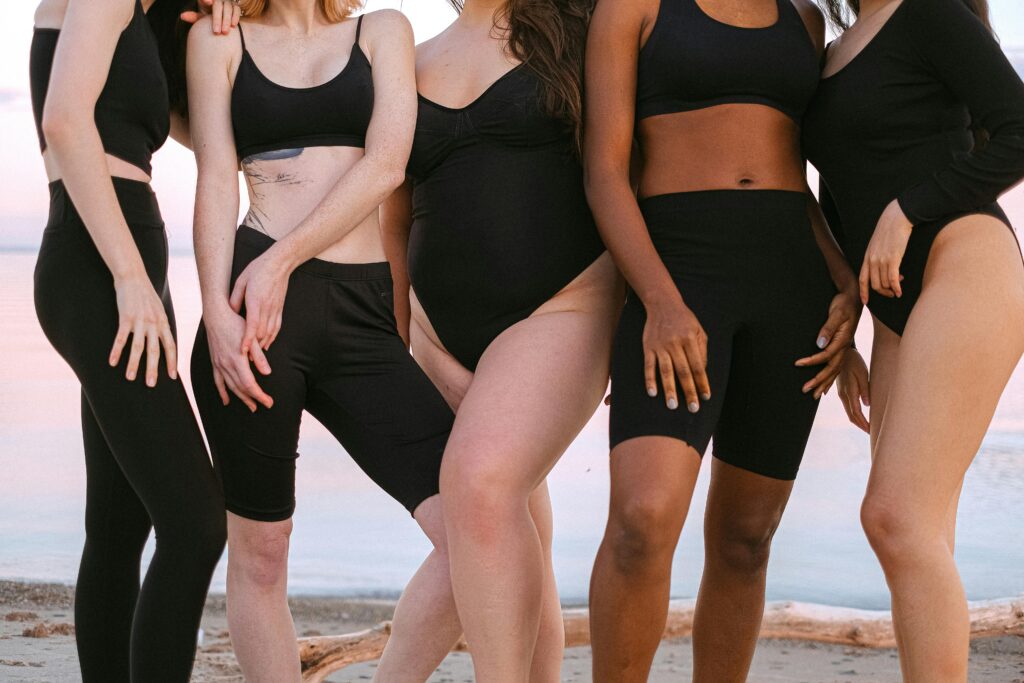Remember when brands prioritised appealing to a mass market?
There were less brands, less products, demographics were broad, and the majority was more of a homogenous entity. Or at least that was the perception. A simpler time some would argue, and products, advertising and marketing reflected this, aiming for broad appeal, believing that a universally attractive campaign would capture the audience. While efforts were made to segment, the sheer granularity and desired level of personal connection that consumers expected was far less pronounced.

Fast forward to today, and the game has fundamentally changed, especially when targeting Millennials and Gen Z. These generations don’t just have diverse identities, they celebrate them. And fundamentally they expect brands to acknowledge, respect, and reflect that diversity. The shift isn’t merely in the existence of diversity (something that has always existed), but in its prominence and the consumer’s demand for authentic representation.
This means that the “one-size-fits-all” or even broadly segmented research approaches just don’t work for brands targeting younger generations. Trying to understand the nuanced expectations of a Gen Z individual who defines their own gender, champions specific social causes, or navigates multiple cultural identities through a research panel designed with broad brushstrokes is like trying to paint a rainbow using only black and white pigment.
That’s why for brands aiming to connect with the dynamic, incredibly varied, and deeply values-driven under 30s customer base, a diverse research panel isn’t just a “nice-to-have”, it’s an absolute non-negotiable. If your research panel doesn’t reflect the rich tapestry of modern identities – across gender, sexuality, ethnicity, geography, economic backgrounds, neuro-diversity – you’re essentially trying to understand a kaleidoscope through a single, outdated lens.
So, what does genuine diversity in a market research panel look like, and why is it so crucial for connecting with younger consumers?
Beyond basic – unpacking true diversity
When we talk about diversity in this context, we’re casting a wide net –
Gender and sexuality – not just male/female, but also non-binary, trans, gender-fluid, and a wide spectrum of sexual orientations. Brands need to understand how different identities interact with products, messaging, and brand values. What resonates with a young, queer woman in Brighton might be different from a straight man in rural Yorkshire.
Ethnicity and culture – the UK is a vibrant tapestry of cultures. Assuming a ‘universal’ consumer experience across different ethnic backgrounds is a recipe for disaster. Cultural nuances impact everything from food preferences to fashion choices, communication styles, and media consumption. A campaign that lands well with second-generation South Asian young adult in London might fall flat, or even offend, other ethnic groups.
Disability and neurodiversity – understanding the needs of consumers with physical disabilities, sensory impairments, and neuro differences (like autism or ADHD) impacts everything from website accessibility and product design to store layouts and communication methods. Ignoring this segment means missing a huge, often underserved, market that values inclusivity and ease of access.
Geography (urban vs. rural) – living in a bustling city like Manchester offers vastly different daily experiences and priorities than living in a small village in the Scottish Highlands. Access to amenities, public transport, community ties, and even digital connectivity can shape purchasing habits and brand loyalties.
Economic backgrounds – the assumption that all Millennials and Gen Zs have disposable income for avocado toast and designer trainers is a dangerous myth. Economic disparity heavily influences purchasing power, value perception, and brand accessibility. Understanding how those on tighter budgets approach spending, compare prices, and seek out deals is just as vital as understanding premium spenders.
Life stage – a Gen Z still in university faces different challenges and needs than one who has entered the workforce, or a Millennial navigating parenthood. Their priorities, discretionary spending, and media consumption will vary wildly.

The benefits of a diverse panel
When your research panel mirrors the rich diversity of your target audience, the insights you gather become infinitely more powerful and accurate:
Authentic resonance – diverse perspectives lead to messaging and products that genuinely resonate. You’ll uncover nuances that generic research simply misses, helping you avoid tone-deaf campaigns or products that alienate significant portions of your audience.
Uncovering blind spots – homogeneous panels breed echo chambers. Diverse panels challenge assumptions, exposing biases you didn’t even know you had. This is crucial for identifying unmet needs or potential missteps before they become costly errors.
Innovation and creativity – different life experiences spark different ideas. A diverse panel can offer creative solutions, product ideas, and marketing angles that a more uniform group might never conceive.
Building trust and loyalty – brands that demonstrate a genuine understanding and respect for diverse experiences are more likely to build deeper connections and foster long-term loyalty with Millennials and Gen Z, who highly value authenticity and inclusivity.
Future-proofing – younger generations are setting future trends. By understanding their diverse needs and preferences now, brands can better adapt and future-proof their strategies for years to come.
In short, your audience isn’t a single, uniform entity. It’s a vibrant, multifaceted mosaic. To truly understand, connect with, and serve Millennial and Gen Z customers, your market research needs to reflect that complexity. It’s not just about ticking boxes; it’s about unlocking a richer, more accurate understanding that drives genuine brand success and loyalty.
BEAM are experts in finding diverse and complex panels for your research. Let us know who you are hoping to include in your next market research project here
